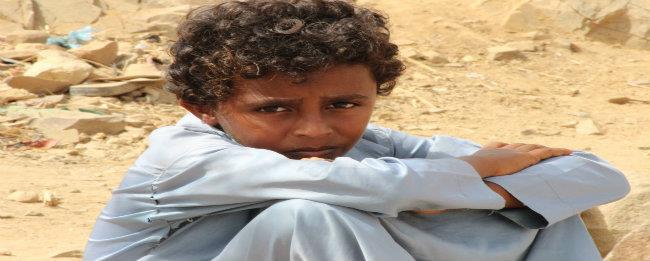It is hard to imagine how much more Yemen can take before it collapses entirely.
The conflict in the country has claimed the lives of thousands of women, men and children, forced nearly three million others from their homes and left more than half the country without enough to eat.
Now Yemen faces another crisis, amid a cholera outbreak of historic levels, with nearly 2,000 deaths and the number of suspected cases having now topped half a million.
Earlier this year, I was in Yemen in my role as a water and sanitation adviser with Oxfam and I saw firsthand the devastating impact of the crisis.
Even then, the scale of the catastrophe was grimly apparent. And it’s got even worse since.
For many people, weakened by war and hunger, cholera is the knockout blow.
So why isn’t Yemen receiving the international attention it so desperately needs? The worsening situation is still largely ignored by the rest of the world and international media that have tried to report on the crisis are being prevented from entering the country.
Many of my friends and family back in Aberdeenshire only know what’s happening in Yemen because I’ve been so involved in the humanitarian response.
Last year, people in Scotland generously gave over £1.3 million to the Disasters Emergency Committee’s Yemen Crisis Appeal, including a much needed £250,000 contribution from the Scottish Government.
But overall, funding from governments to pay for the aid effort has been lacklustre at best, with less than half of what’s needed provided.
We know that cholera is treatable and easy to prevent, but that’s only possible if we have access to communities, equipped with the right tools and resources. It’s clear that Yemen desperately needs a well coordinated effort to get clean water and decent sanitation to people and simple things like soap and water to keep them safe from disease. We also need to be able to get vital supplies and staff into the country so we can get on with the job.
The world cannot continue to turn a blind eye as the most vulnerable Yemenis suffer. War is having a devastating effect on Yemen’s people and its infrastructure. Health, water and sanitation systems have been bombed to the point of collapse and many of the key public health workers have not been paid for the last six to nine months, leaving over 15 million people without adequate access to clean drinking water and safe sanitation.
The reality is that international agencies tackling the cholera crisis are in danger of being overwhelmed by the scale of the outbreak.
All of us working on the humanitarian response know that while keeping people alive today is paramount, an end to the fighting is absolutely key so they can also have a future.
And that future depends on the international community.
Governments, including the UK Government, must stop being arms brokers and start being peace brokers to help Yemen on the road to peace. At the moment official arms sales by Western governments are helping to fuel a war that is causing wide-spread suffering and tipping a whole nation towards a catastrophe.
Earlier this summer, the courts gave the UK Government discretion to continue selling arms, despite clear evidence of the devastating impact on Yemen from selling arms to Saudi Arabia.
The risk of fathers, mothers, sons and daughters having their lives cut short continues in Yemen due to UK exported weapons. People’s homes and local markets will continue to be bombed. And, without action, if the bombs don’t kill them, hunger or disease will.
This article originally appeared in The Herald.
